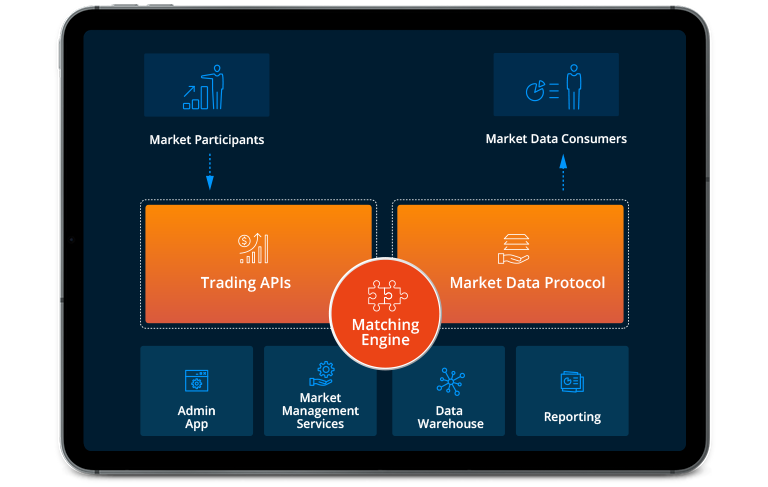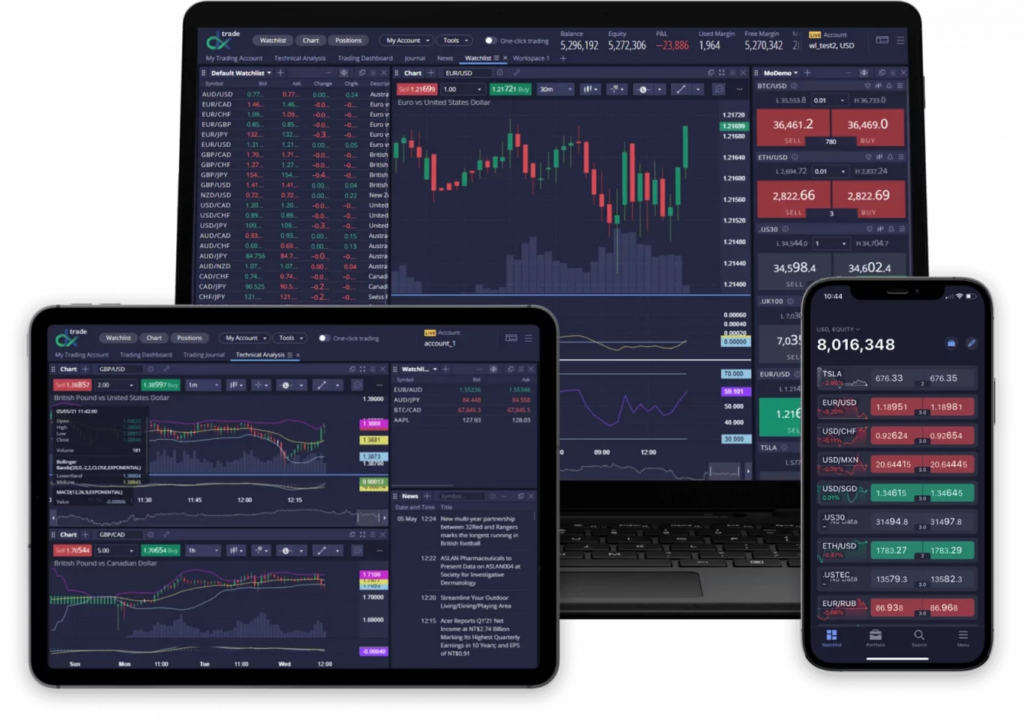Bridging the Skills Gap: Trading Tech by Outsourced Engineers

Trading firms are facing a harsh reality: Their legacy tech is holding them back.
Think about it—most trading platforms were built on robust but inflexible systems fit for purpose 10+ years ago. Not to mention that many firms still accept orders from their clients by phone—or support voice trading over electronic trading—which is unsuitable for capturing swift market opportunities.
But those complex foundations have turned into a tangled mess of legacy code that stifles growth. But worse than that, it has exposed institutions to additional risks and liability.
How bad is it? There are real-life tales of trading firms having to call retired engineers back into work to make sense of their archaic, homegrown systems. No wonder keeping up with Silicon Valley’s fast pace feels impossible. Then there’s the talent war. Trading firms, long-established exchanges, emerging fintech disruptors—they’re all battling for the same small pool of trading tech experts.
So how can you win? How can you break free from technical debt and modernize systems?
In this blog, we’re covering sustainable, future-proof solutions to bridge the tech talent gap while empowering your trading platform with cutting-edge capabilities.
Recognizing the gap in technical expertise
Unsurprisingly, competition is fierce with asset managers and investment banks vying with tech giants for architects, data scientists, QA engineers, project managers, business analysts, software developers, and more.
Building advanced platforms requires an extensive, multidisciplinary team. They’ll likely be specialists in different stacks like Java, .NET, Go, Python, Node.js, Kotlin, Swift, and Objective-C.
These professionals must have the ability to build robust systems capable of handling immense transaction volumes with split-second execution and zero tolerance for errors or downtime. Securing talent with this specialized blend of skills is becoming increasingly difficult.
However, the trading technology ecosystem demands more than just coding prowess—it also requires specific expertise in areas like regulatory compliance, data security standards, and the complex financial instruments being traded.
Research from McKinsey revealed that 87% of executives are experiencing skill gaps in their financial services workforce, while research by UK Finance found that 30% of the sector’s employees felt they needed more digital/tech expertise.
This shortage poses multiple risks:
- Slow operations: The absence of skilled personnel can fundamentally undermine a firm’s ability to operate efficiently. In the high-stakes environment of financial trading, where milliseconds can translate to significant gains or losses, the impact of not having skilled developers to maintain and enhance trading systems can be catastrophic.
- Technical and competitive stagnation: A shortage of technical talent can lead to stagnation in technological advancements, resulting in firms falling behind their more agile competitors who are better equipped to adapt.
- Regulatory and compliance: Essential functions such as trade monitoring, surveillance, reporting, and auditing increasingly rely on sophisticated technology. The lack of proficient professionals to implement these technologies can compromise a firm’s compliance with regulations and damage client trust.
To sum up: Firms are facing increased pressure to explore alternative resourcing models to acquire and retain technological skills.
The good news is there are viable options to address the skills gap.
Let’s take a look at them.
Overcoming the skills gap
There are two ways to plug the talent shortage:
Managing in-house full-stack engineers
Building elite in-house technical teams for trading infrastructure carries an often underestimated price tag. The salaries required to attract top talent are steep.
Additionally, comprehensive benefits, continuous training on emerging technologies, equipment, and coveted workplace perks like office meals, gym memberships, and other well-being and leisure incentives rapidly inflate the costs.
Beyond the direct expenditures, trading firms must nurture a culture that enhances productivity and appeals to developer demands like work-life balance and professional growth opportunities.
From cultivating the right environment to offering premium amenities, these indirect costs are substantial in recruiting and retaining an engineering workforce. While in-house teams offer control and dedication, the full financial outlay and cultural investments can be staggering.
So, let’s look at the alternative resourcing option.
Leveraging external technology partnerships
Pivoting to external partnerships unlocks access to specialized skills and capabilities that are scarce and expensive to facilitate internally. On top of this, they provide multiple key benefits:
- Reduce overheads associated with continuous recruitment, training, and retention of a comprehensive in-house engineering workforce.
- Flexibly scale up or down as project needs fluctuate—something difficult with permanent staff.
- Gain fresh perspectives and a diversity of experience, sparking new ideas and avoiding the trap of the insular echo chambers.
Overcoming outsourcing hesitations
While the benefits of outsourcing development work are compelling, one common concern puts businesses off: Difficulty integrating outsiders.
A common apprehension is the perceived challenge of onboarding external teams and integrating them into the ecosystems and operations unique to the exchange/brokerage space. There are valid fears that the time and effort required to get outsiders up to speed could negate the potential efficiencies.
The solution here is to opt for a software development company specializing in financial technology, such as banking applications. Their teams can be onboarded quickly without a long learning curve of investment portfolio interface and order processing.
The specialization advantage
Specialized financial software providers—like Devexperts—successfully master regulatory demands, cybersecurity priorities, and the mission-critical need for high performance, low-latency throughput, and reliability.
Ultimately, these firms can hit the ground running with a deep understanding of trading technology essentials.
Actually, there have been a few cases when a small group of Devexperts architects and engineers were invited to clients’ offices for a discovery phase for 2-3 days, and they stayed for the whole week because our engineers ran an audit and taught the client what elements in their technology are missing.
Case study: Building and launching a US-regulated futures options exchange from the ground up
This example features a futures and options exchange launched in 2020 in the US. The project required a specific technology with sophisticated reporting, risk management tools, and consistent sub-millisecond latency for socket-to-socket FIX message processing.

Devexperts developed the project from scratch. The solution covered hardware, connectivity, clearing, market data delivery, matching engine, admin tools, data warehouse and reporting, settlement, disaster recovery, and index construction.
By the end of 2020, it was processing over eight million orders per day.
Read the full case study here.
Unlocking potential with outsourced trading tech expertise
The persistent tech talent shortage, skyrocketing costs of facilitating in-house engineering teams, and immense complexities of developing modern trading platforms argue a clear case for partnering with external specialists.
These collaborations provide access to specialized skills that plug the skills gaps, bring new ideas, and provide resourcing flexibility to mitigate large overheads.
The key takeaway? The use of outsourced expertise and specialist financial software is not just a temporary fix for current limitations but a long-term investment in the health and competitiveness of any trading platform.
Why Devexperts is the partner of choice
Devexperts has developed 50+ custom trading platforms for brokers, banks, and exchanges worldwide since 2002. We have over 800 software engineers, 25 industry awards, and 12 million end users.

Here are just several reasons we’re the financial software partner of choice:
- Flexibility: You tell us your challenges and vision. We adapt and find a way; whether it’s a new investment app, custom platform, or something completely unique.
- Leverage off accumulated knowledge: It’s easy to get lost while estimating the fastest time to market and budgets without experience. We understand the nuances of financial technology.
- Escape vendor lock-in: We prioritize clients’ interests to craft solutions informed by logic-driven, data-backed methodologies, to grow independently with easily scalable architecture.
- State-of-the-art design: Our UX/UI design team specializes in financial software. They know how to combine complex data visualization, with beautiful and easily-to-digest interfaces.
- World-class developers: Our developers follow CMMI Level 5 and PMI standards. With R&D centers across the globe, we understand the pain points, trends, and priorities for different regions .
- Quality assurance included: Our clients are in capable hands with our industry-leading QA team: all Devexperts engineers have ISTQB certification and a minimum of 3+ years of experience.
Ready to take your next step? Learn more about our financial software and the specials that support it.